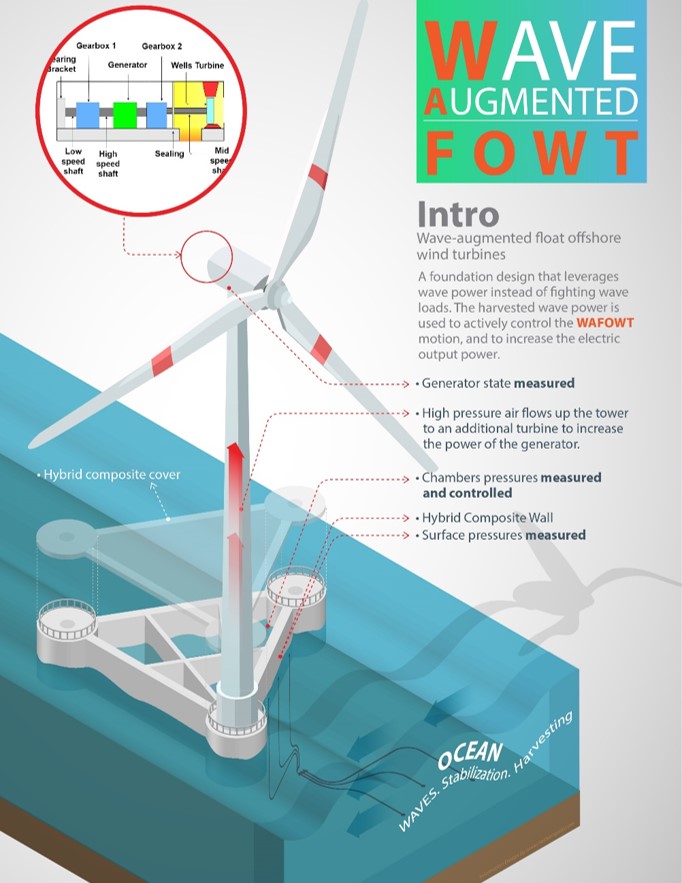Project Title: Dynamics and Control of a Novel Wave-Augmented Floating Offshore Wind Turbine
Sponsor: National Science Foundation
This is a synergistic experimental and computational research program to investigate a new concept of a Wave Augmented Floating Offshore Wind Turbine (WAFOWT) that leverages wave power, via integrating an Oscillating Water Column (OWC) concept of WECs in the semi-submersible platform of a FOWT. In the WAFOWT, the wave power provides active control of the floating platform (via a set of control chambers), and also increases the power on the wind turbine generator. The figure below depicts the proposed architecture. To create a large chamber under the tower, lightweight hybrid composite covers are proposed to close the semi-submersible platform from the sides and the top. The changing wave elevation inside this chamber creates high-pressure air that is used to generate power in a way similar to the OWC WEC technology. The high-pressure air is channeled (using a duct embedded in the tower) up to the nacelle to drive a unidirectional Wells turbine. The turbine is connected to the existing FOWT generator via another gearbox. The air chamber in the floating platform is divided into multiple smaller rooms that are connected via valves that control airflow between them. These valves are used to create differential pressure between the rooms to actively control the pitching motion and mitigate loads on WAFOWT, thereby reducing the platform mass.

The objectives of the project are:
- Develop a deeper understanding of the coupled hydrodynamic/ aerodynamic/ thermodynamic behavior of the WAFOWT, via analytical, numerical, and experimental investigations.
- Understand the impacts of different design/ control parameters on the WAFOWT dynamic behavior.
- Achieve a reduction in the WAFOWT LCOE compared to the state-of-the-art FOWT, via optimization of system design and control.
- Develop a dynamic model and a control strategy for the WAFOWT in an optimal sense to minimize the LCOE.
Project Members:
Prof. Ossama Abdelkhalik (PI), Iowa State University
Prof. Partha Sarkar (Co-PI), Iowa State University
Acknowledgment
This material is based upon work supported by the National Science Foundation under Grant Number 2323927
Disclaimer
Any opinions, findings, and conclusions or recommendations expressed in this material are those of the author(s) and do not necessarily reflect the views of the National Science Foundation.